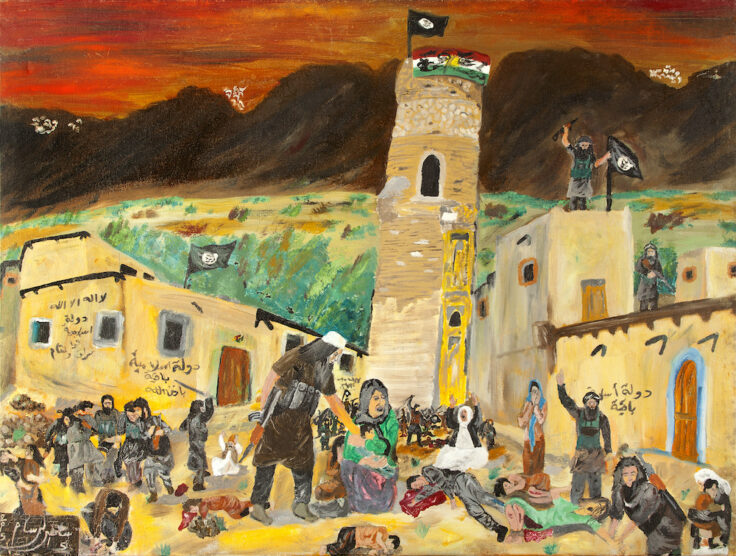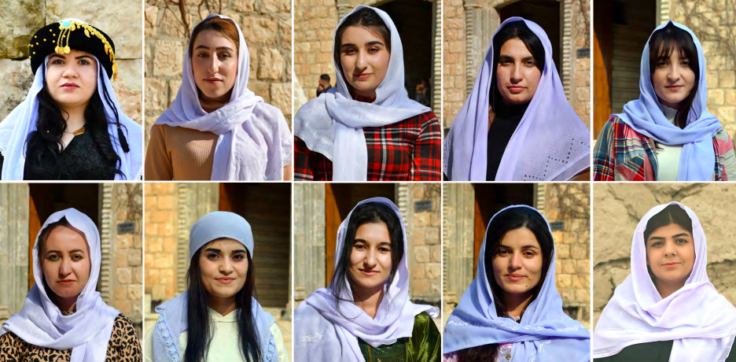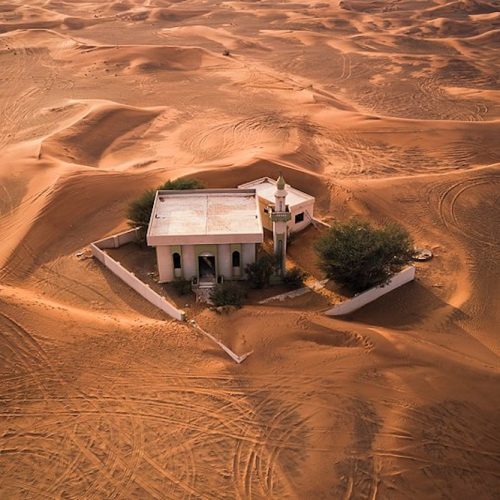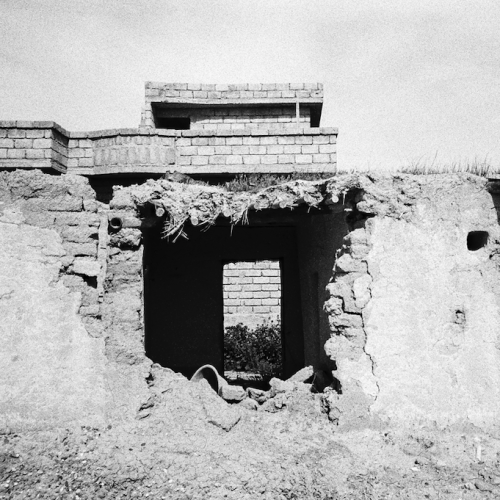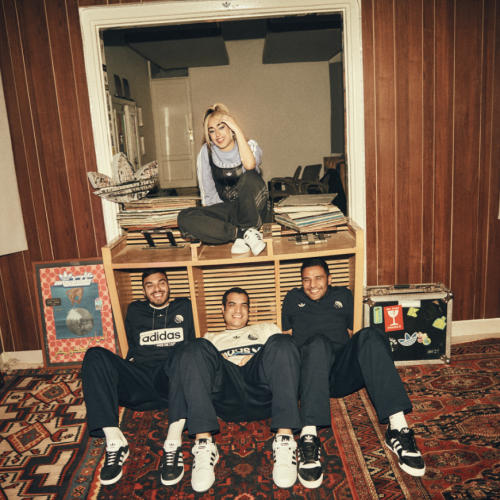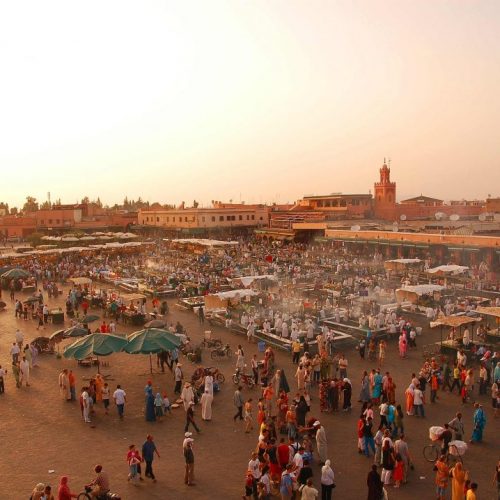In 2014, the militant Jihadist network known as the so-called Islamic State (ISIS or Da’esh) swept across Northern Iraq, launching a genocidal campaign against the Yazidi people, a religious minority group in Iraq. Thousands were imprisoned or killed, women were abducted and raped, and close to 100,000 people escaped from their destroyed villages and fled into the mountains, where they were trapped with no food and water. The unfathomable horror is today known as the Sinjar Massacre.
In addition to executing and enslaving thousands of innocent civilians, including human rights activist and Nobel Peace Prize winner, Nadia Murad who lost her family and suffered sexual slavery, the militant group also damaged and destroyed several key Yazidi heritage sites. Indeed, the attacks by the Islamic State caused unimaginable suffering to the Yazidis, who have displayed remarkable unwavering fortitude following the devastating genocide perpetuated by ISIS.
At the onset of the genocide, a number of non-profits and organizations launched to advocate and offer support for the Yazidi people, while helping preserve the minority group’s rich longstanding culture. Among them is Yazda, a global organization that leads advocacy and strategic projects in Dohuk, Sinjar, and the Nineveh Plains, as well as global diaspora hubs.
Yazda was founded by Haider Elias, a former translator and cultural advisor in the US, who after losing his younger brother in the attack against the Yazidi people in August 2014 has devoted his life to protecting his people. In addition to supplying basic medical services through mobile teams and clinics, the non-profit is a staunch advocate for getting female survivors real help and bringing a spotlight on the dreadful plight of women at the hands of militant men.
This week, Yazda, alongside Community Jameel and UK social enterprise CULTURUNNERS, will be hosting a special reception at the Institut Du Monde Arabe in Paris to mark the launch of The Yazidi Cultural Archives — four permanent online exhibitions of artwork, photography, and films created by 16 Yazidi women from internally displaced persons camps who escaped Da’esh captivity.
“Our culture is our identity; preserving it is crucial to our hearts and souls as a community. After the genocide of 2014, the cultural genocide started and is ongoing as our temples and houses of worship have been destroyed, in addition to living in displacement camps for more than eight years,” Elias said in a release. “This digital archive created by the survivors serves as moral support for those of us who have been traumatized and experienced a deep panic of losing our roots and culture,” he added.
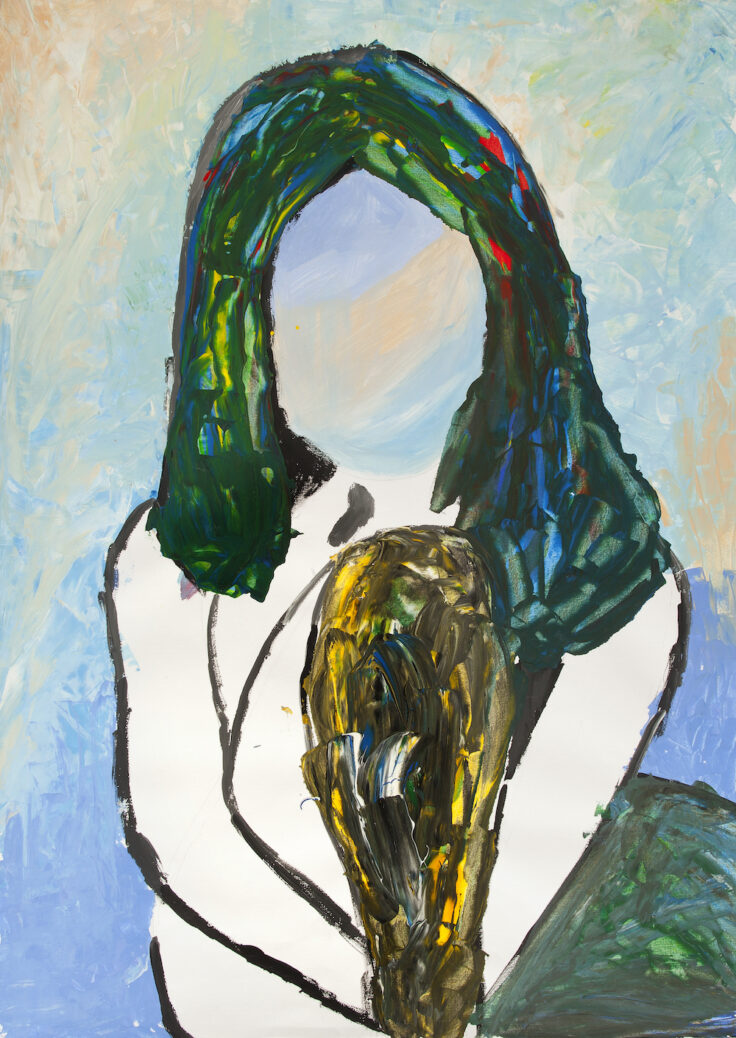
Published by the United Nations on the Google Arts & Culture platform, the project was developed over the course of 12 months, and aims to support the psychological recovery and resilience of the survivors, while serving as a permanent digital repository of Yazidi cultural heritage at risk. The project worked with the Yazidi survivors to document their heritage as an essential part of helping the religious minority community to rebuild itself and survive following years of devastating conflict and genocide.
The healing properties of art cannot be understated. Considering art can help traumatized people to express their suffering in a way not always possible through words, the project served as a safe space for women to share their stories.
“These archives record the richness of Yazidi culture and have been created through a participatory project designed to provide psychosocial support to the survivors of genocide,” shared George Richards, director of Community Jameel. “We are humbled to be working alongside such inspiring partners, especially the women who have created these astonishing archives, and the researchers and practitioners expanding our understanding of how the arts can improve health and wellbeing.”
